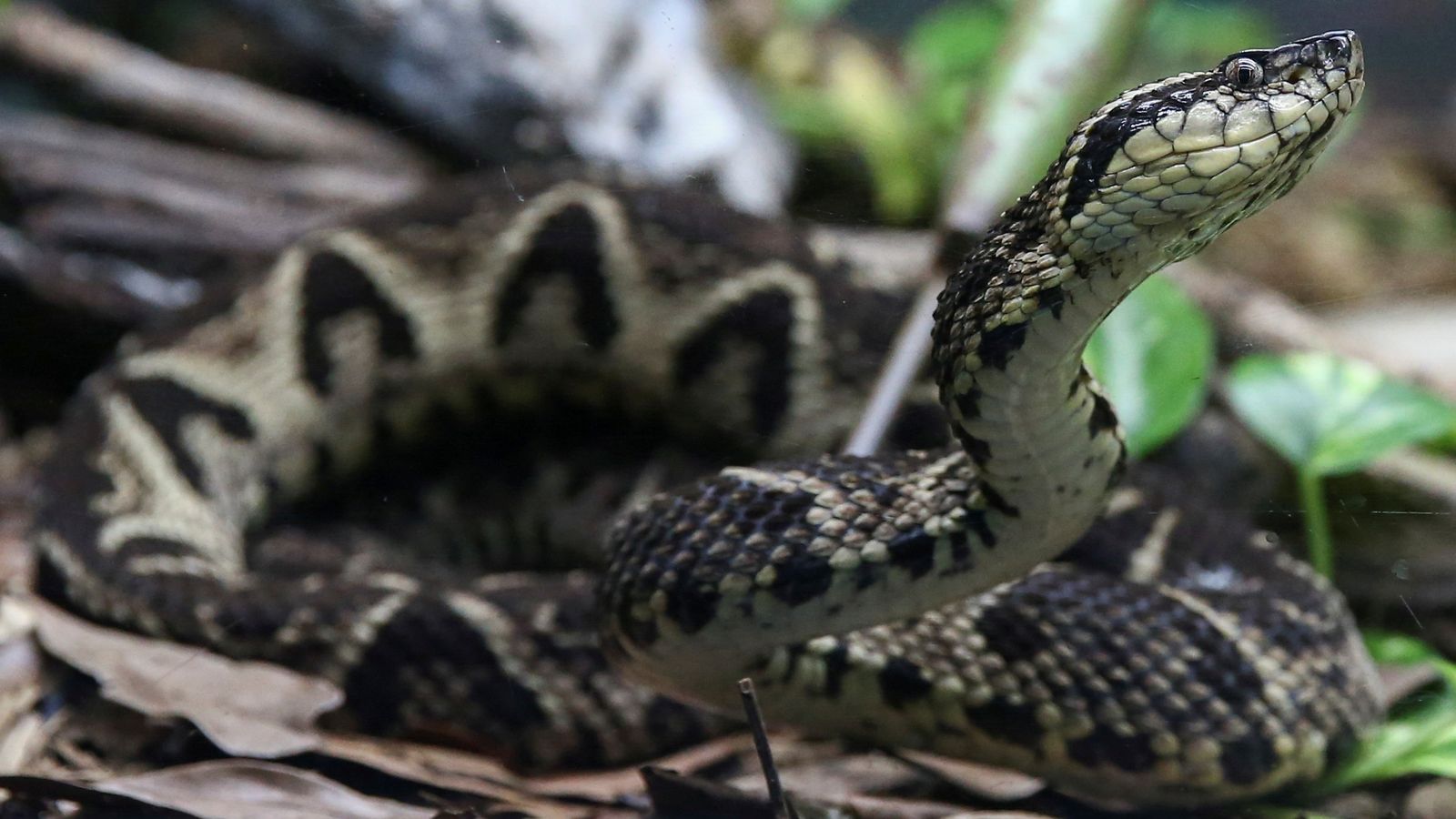Snake venom could be used as a tool in the fight against coronavirus, a study suggests.
Brazilian researchers have found that a molecule in the venom of a type of snake slowed down the reproduction of coronavirus in monkey cells.
The discovery could be a possible first step towards the creation of a drug to combat the virus that causes COVID-19.
Coronaviruses are a large group of viruses that cause respiratory infections. These can range from the common cold to more serious diseases.
COVID-19 is caused by a new form of the virus known as SARS-CoV-2.
The study showed a molecule produced by the jararacussu pit viper, one of the largest snakes in Brazil, reduced the disease’s ability to multiply by 75%.
One of the scientists involved in the research, Rafael Guido, said: “We were able to show that that component of the snake’s venom was able to inhibit a very important protein of the virus.
“It’s the first step in a long journey… the process is a very long one.
“A component of the venom demonstrated in this study is that it has development potential. It’s a long road, we have taken the first steps.”
Published in the scientific journal, Molecules, the research found the fragment is a peptide, or chain of amino acids, that can connect to an enzyme of the coronavirus called PLPro.
PLPro is vital to the reproduction of the virus without hurting other cells.
The jararacussu can grow up to 2m (6ft) long and is found in Brazil, the coastal Atlantic Forest, Bolivia, Paraguay and Argentina.
Mr Guido added that scientists are “afraid people will go hunting for the jararacussu all over Brazil, thinking it will save the world or themselves, their family”.
He said: “That’s not the case. Is this an important discovery? Without a doubt it is, but chasing after the animal is not how it will be resolved.”
“The component that was discovered is just a fraction from inside the venom, it is not the venom itself that will cure coronavirus at this time.”
Researchers will next evaluate the efficiency of different doses of the molecule and whether it can prevent the virus from entering cells in the first place, according to a statement from the State University of Sao Paulo (Unesp), which was also involved in the research.
They hope to test the substance in human cells but gave no timeline.






















